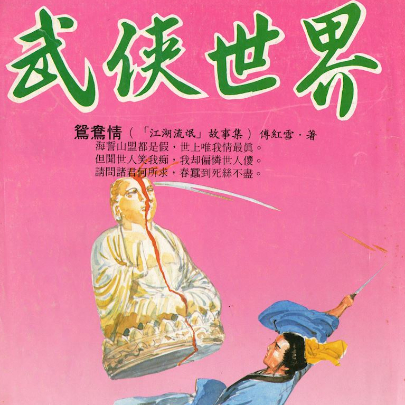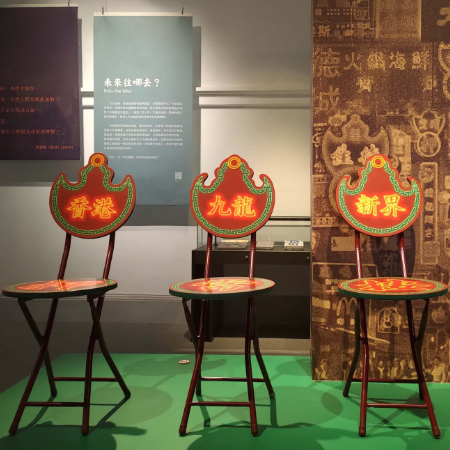My City and Other Stories| Into the Mist| Online Lennon Wall| Important moments of Hong Kong literature| Stories of Hong Kong Literature
Soon after a nativist Hong Kong identity had taken firm root in the 1970s, the citizens of the colony became increasingly cognizant of the existential threat looming just below the horizon. Differing perspectives crystalized during the 1980s, with Hong Kong's history, culture, and identity thrown into the fray. Despite impassioned debate and effort, the fog obscuring Hong Kong's future stubbornly lingered.
My City and Other Stories
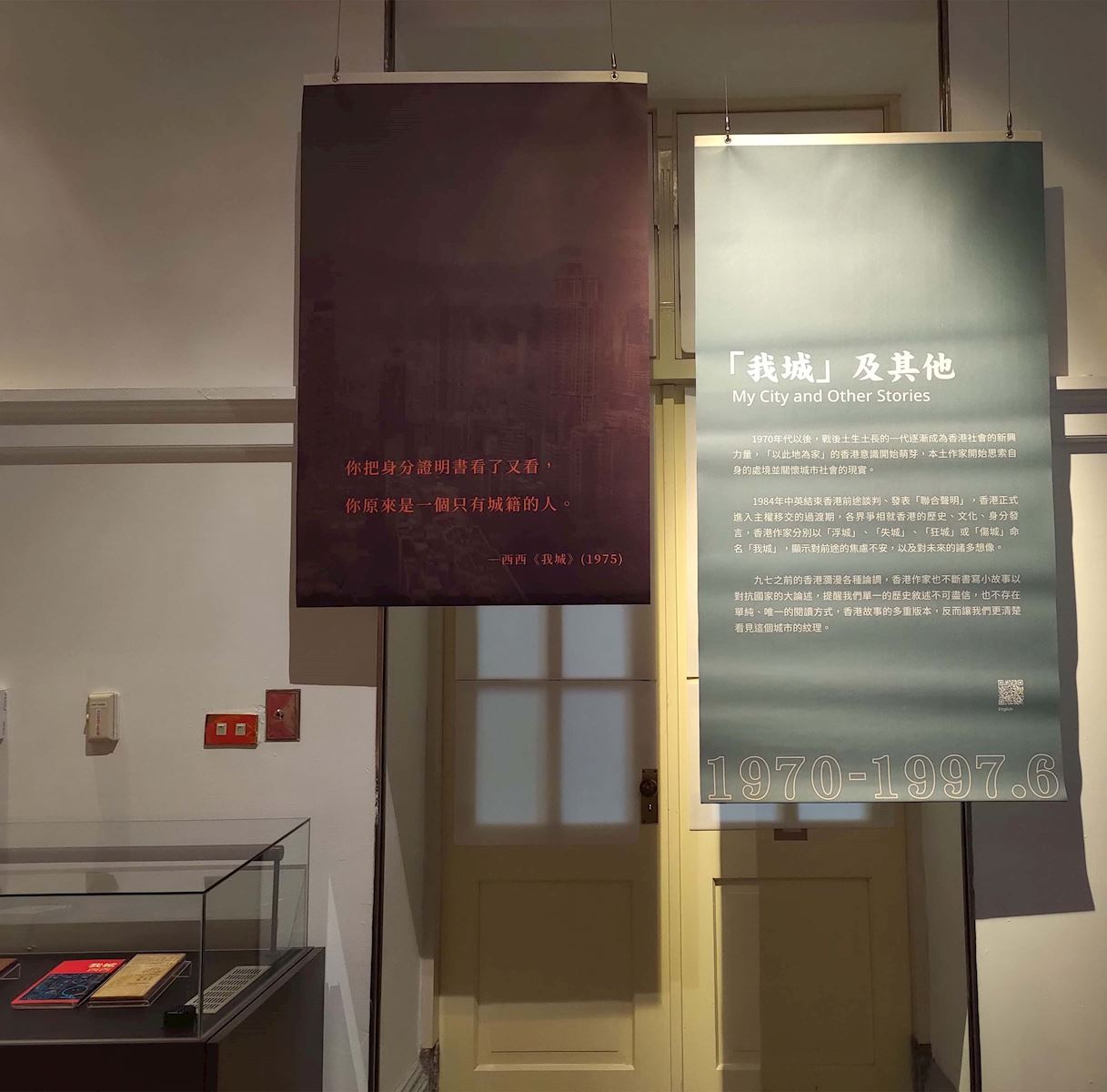
You looked at the identification certificate repeatedly and realized you are just a person who has a city membership.
── Xi Xi, My City (1975)
After the 1970s, the postwar generation of homegrown Hong Kong authors emerged into their own. "Hong Kong, my home" was an idea that underpinned the new Hong Kong consciousness, and local authors began to explore their city's dilemma and involve themselves in contemporary social issues and causes.
Britain and China concluded their negotiations on Hong Kong's future, and issued the Joint Declaration in 1984. The colony began its formal countdown to handover. As various factions fought to define Hong Kong's future interpretation of history, culture, and identity, the colony's authors took a variety of perspectives on Hong Kong in transition, ranging from 'screwball' and 'adrift' to 'lost' and 'suffering', that highlighted both the prevailing anxiety among Hong Kong's citizenry and their myriad ideas about the future.
The run-up to the handover in 1997 was a period of rampant speculation. Local authors published a flurry of stories that offered an alternative to China's nationalist discourse, reminding Hong Kong citizens of the dangers of accepting a singular view of history and of the value of multiple perspectives. The many different versions of the 'story of Hong Kong', in fact, allow a richer and much more granular appreciation of the city and its people.
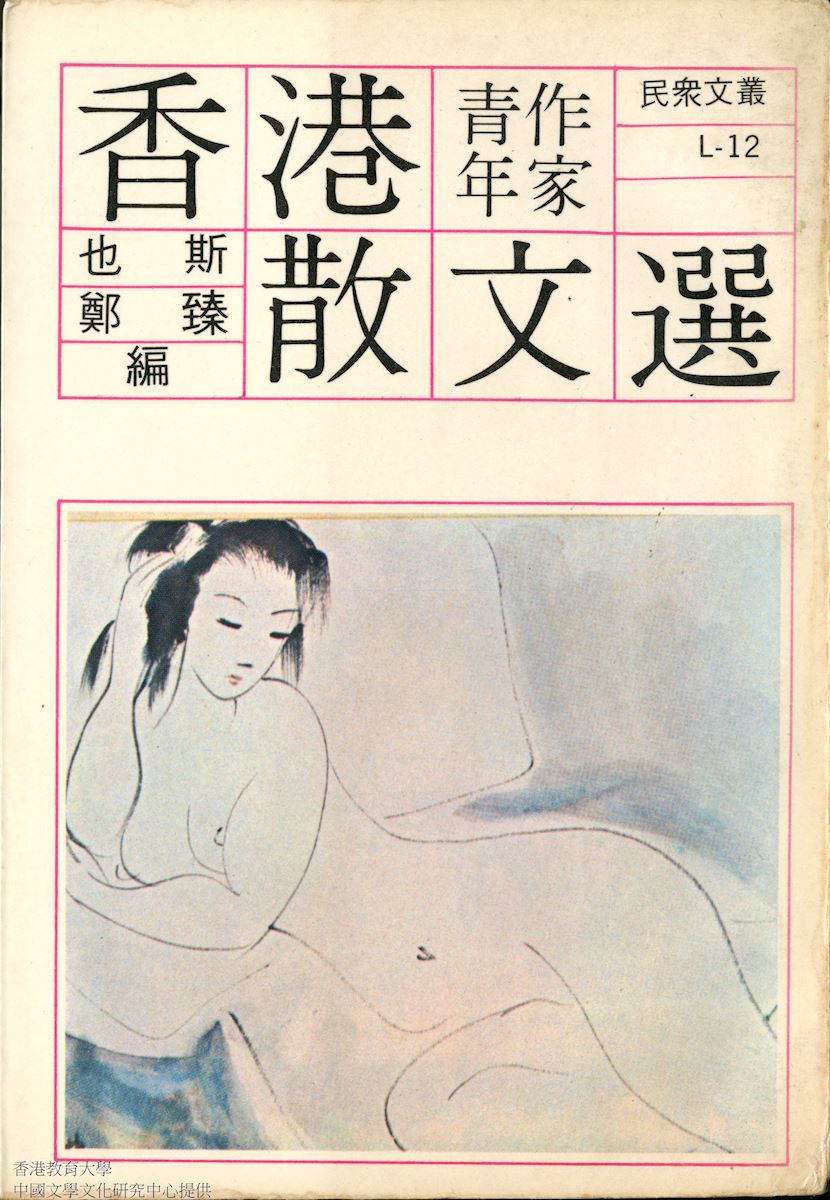
▲ Edited by Ye Si, Zheng Chun “Selected Prose of Hong Kong Young Writers” / Taipei: The Commons Daily Publication / 1979
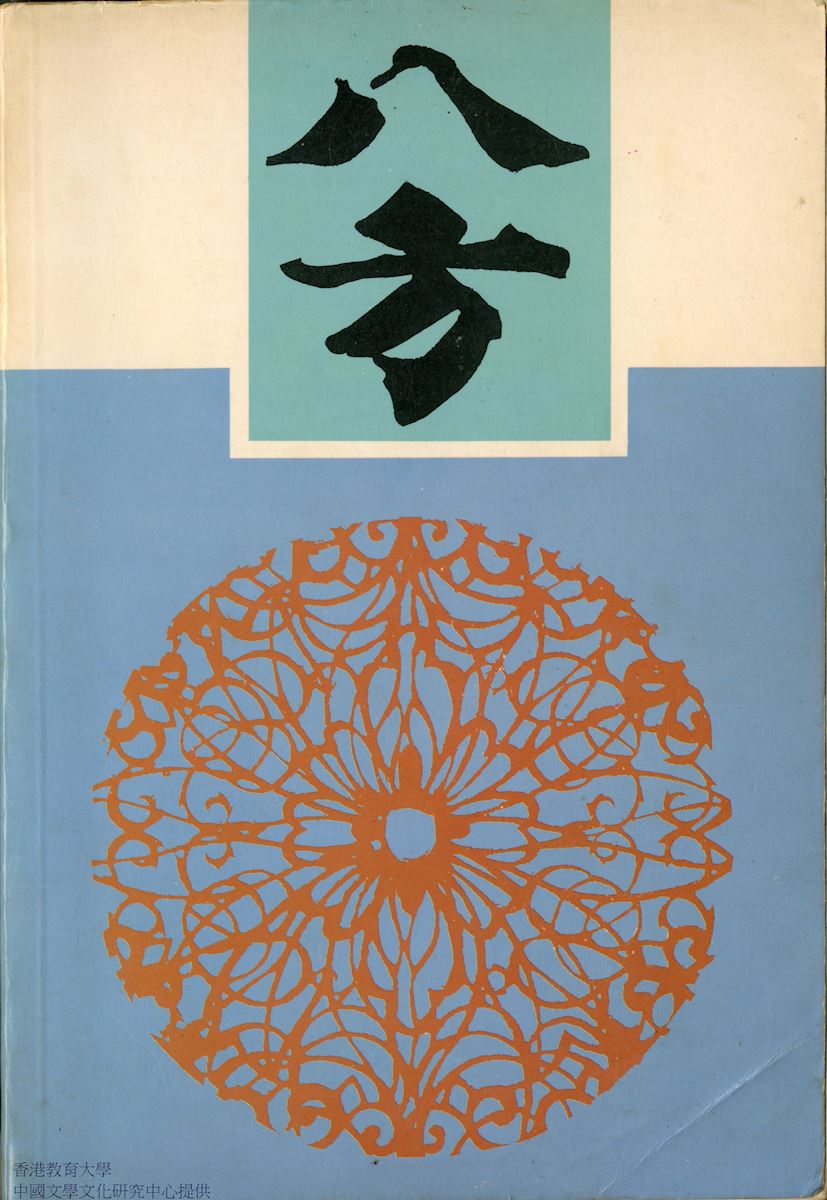
▲ “Ba Fang Literature and Art Series” Volume 1 / September 1979
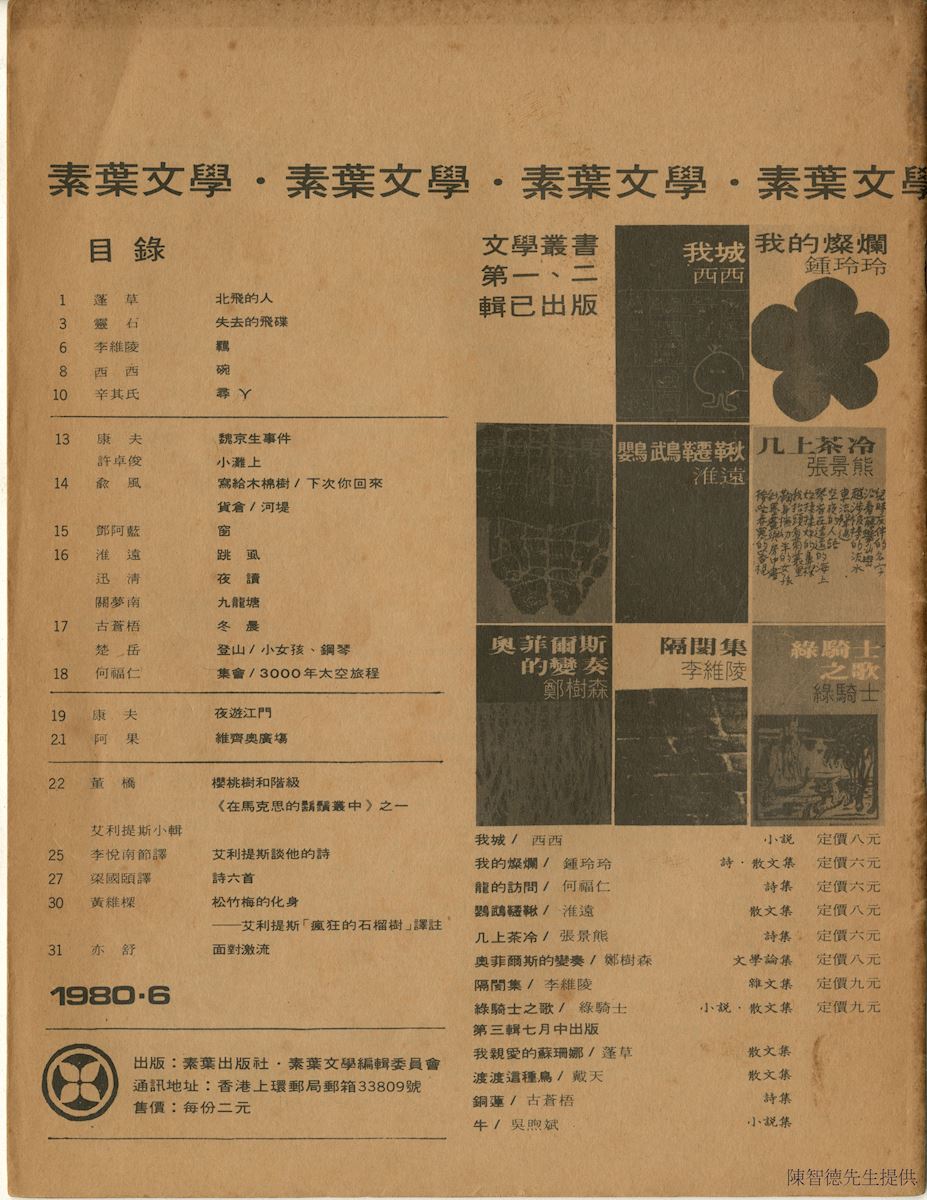
▲ “Suyeh Literature” Issue 1 / June 1980
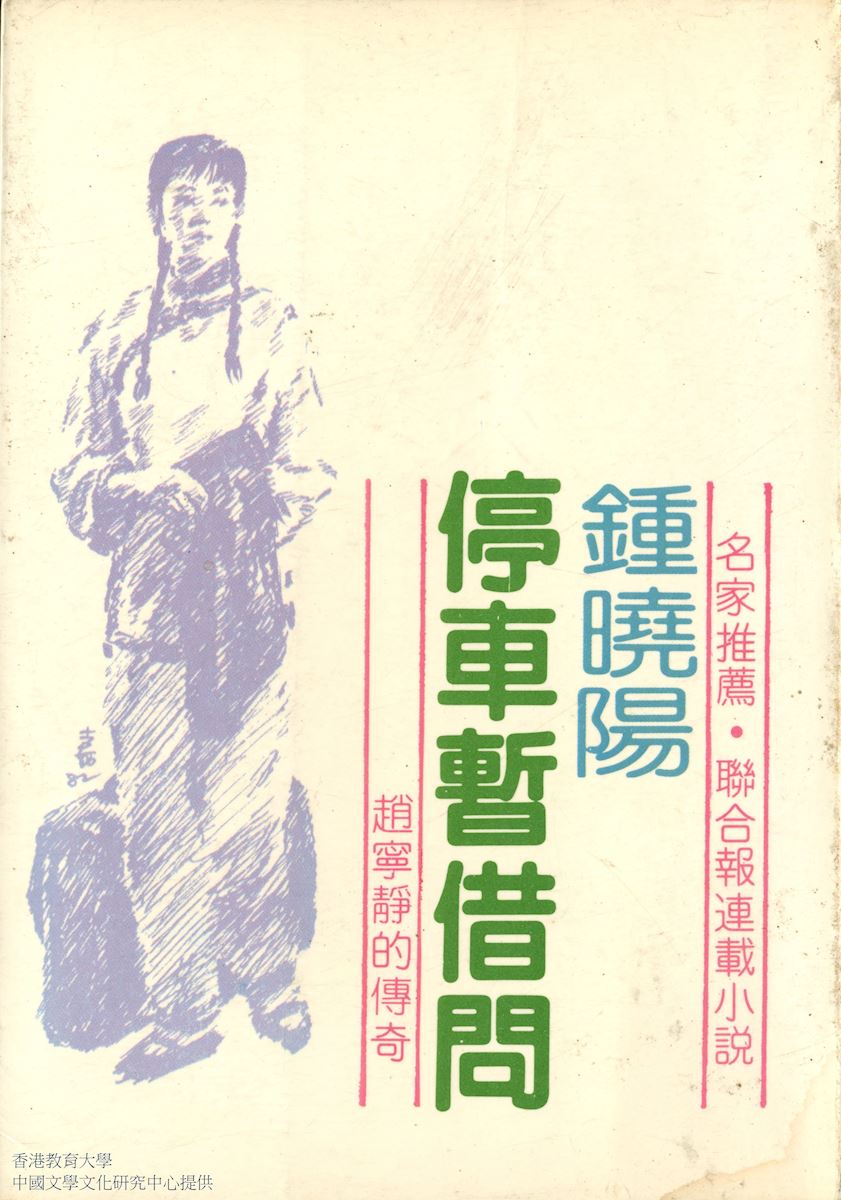
▲ Sharon Chung “A Pinwheel without Wind” / Taipei Sansan Bookstore / 1981
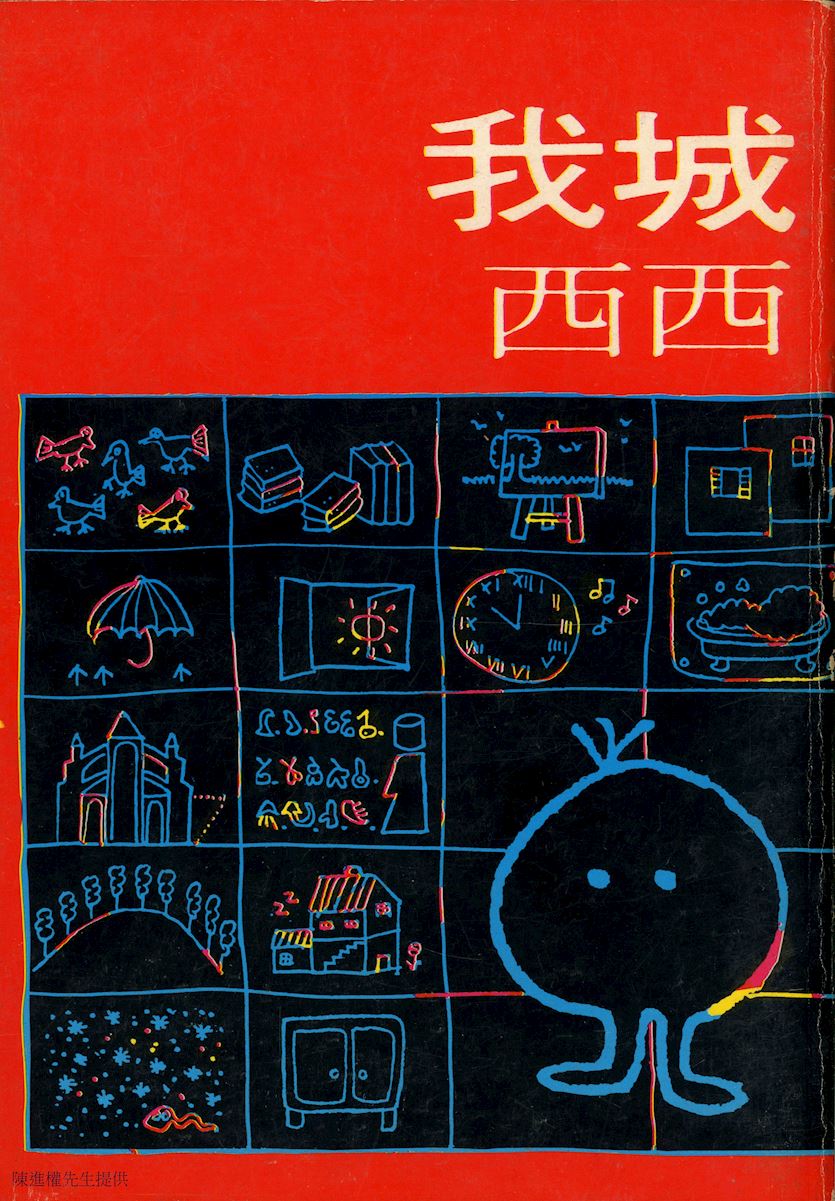
▲ Xi Xi's My City
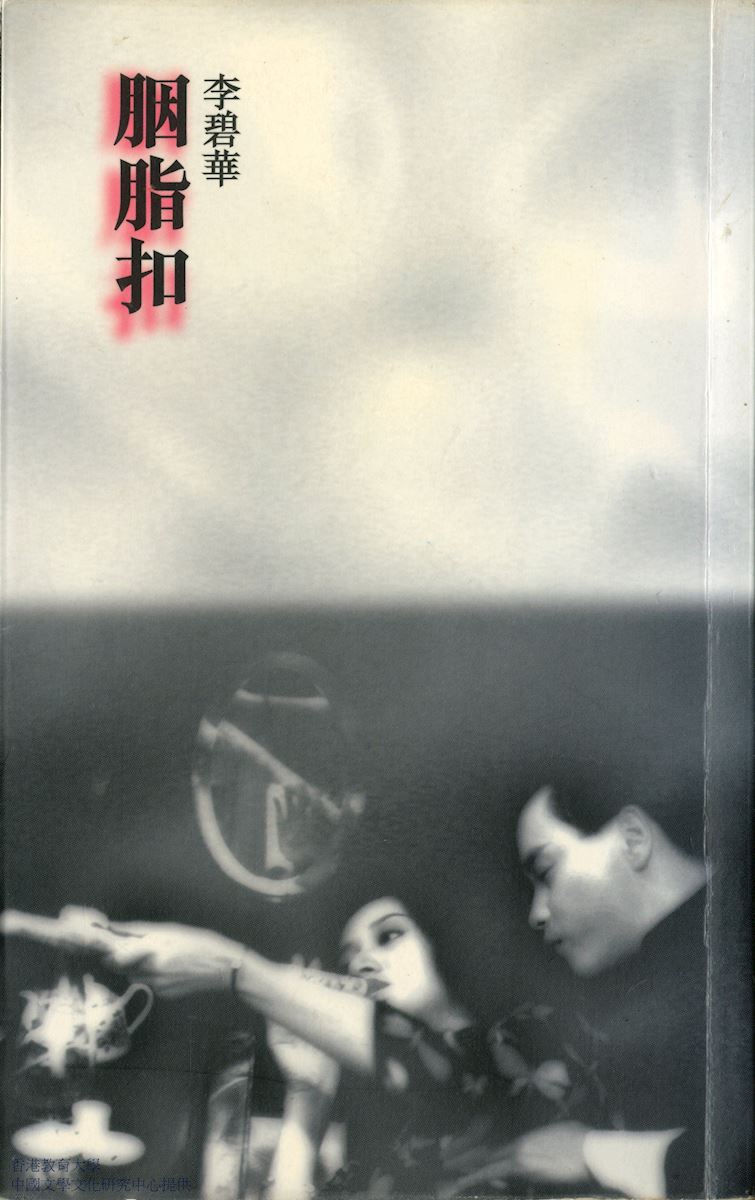
▲ Lilian Lee Pik-Wah's Rouge
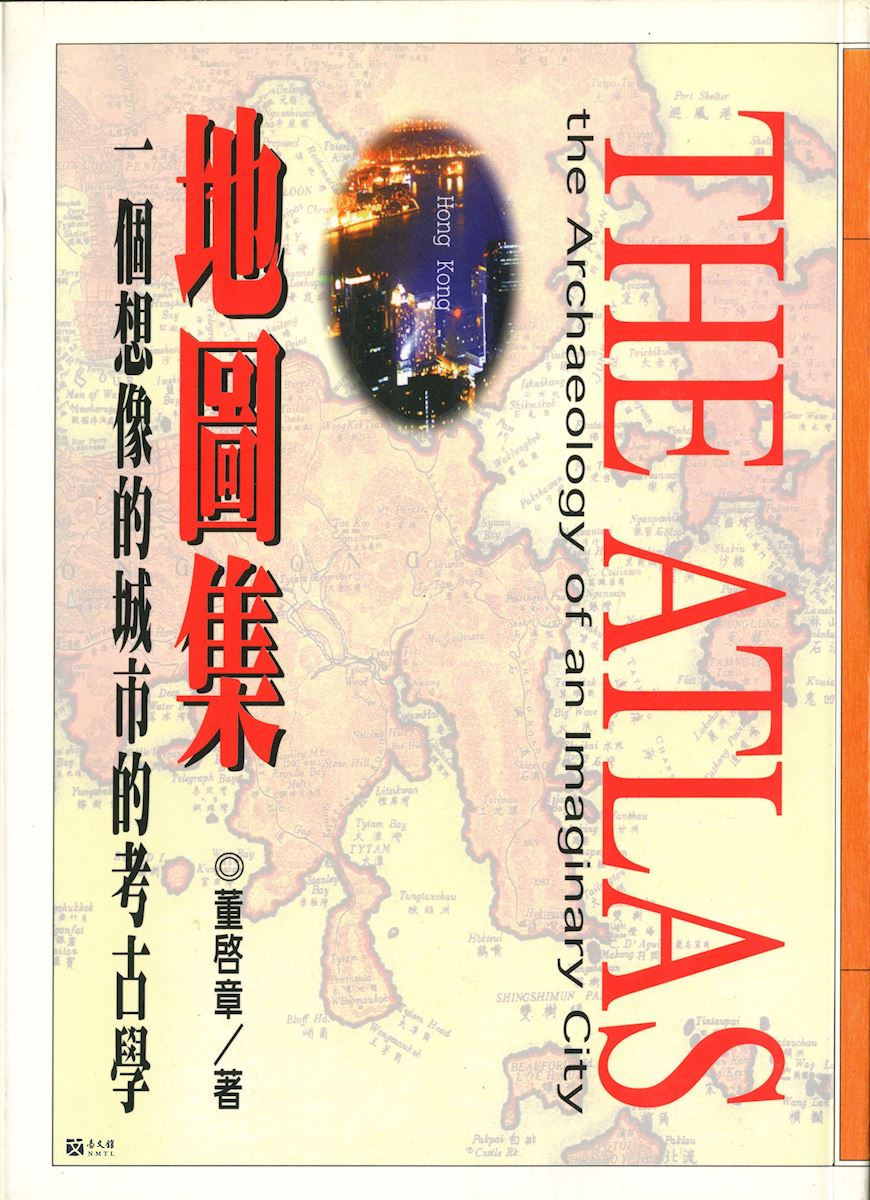
▲ Dung Kai-Cheung “The Atlas” / Taipei: UNITAS Publishing / 1997
Into the Mist
.jpg)
At that time, we then realized what has been constraining people is not gazes or comments, but certain behavior that has long been regarded as the norm.
── Han Li-Zhu's Body Stitching (2010)
The arrival of 1997 settled, at least temporarily, the fate of Hong Kong. Although John Chan wrote his short story Nothing Happened as a foil to the pre-handover anxiety and turmoil, post-handover Hong Kong has indeed changed. Under the umbrella of the promised 50 years of 'no change', the people of Hong Kong now regularly mull the myriad issues and challenges that continue to arise and challenge their city.
As both time and space pass quickly on, reshaping the cityscape in their wake, Hong Kong under the pen of its modern-day authors is portrayed as suffused with a sense of dissociation. The glorification of economic growth, loss of urban green spaces, relentless reclamation of land from the sea, and unrelenting destruction of traditional buildings in favor of glass-encased modern office complexes have pit the interests of development directly against those of conservation, and spawned a dialectic between new and old.
Nationalism vies with nativism, and all seem to be trying to find where they fit on the spectrum in order to ride out the coming half century. Through it all, local authors have continued to speculate, opine, and inquire on Hong Kong's future. What lies ahead for Hong Kong when the 50-year 'no change' pledge expires in 2047?
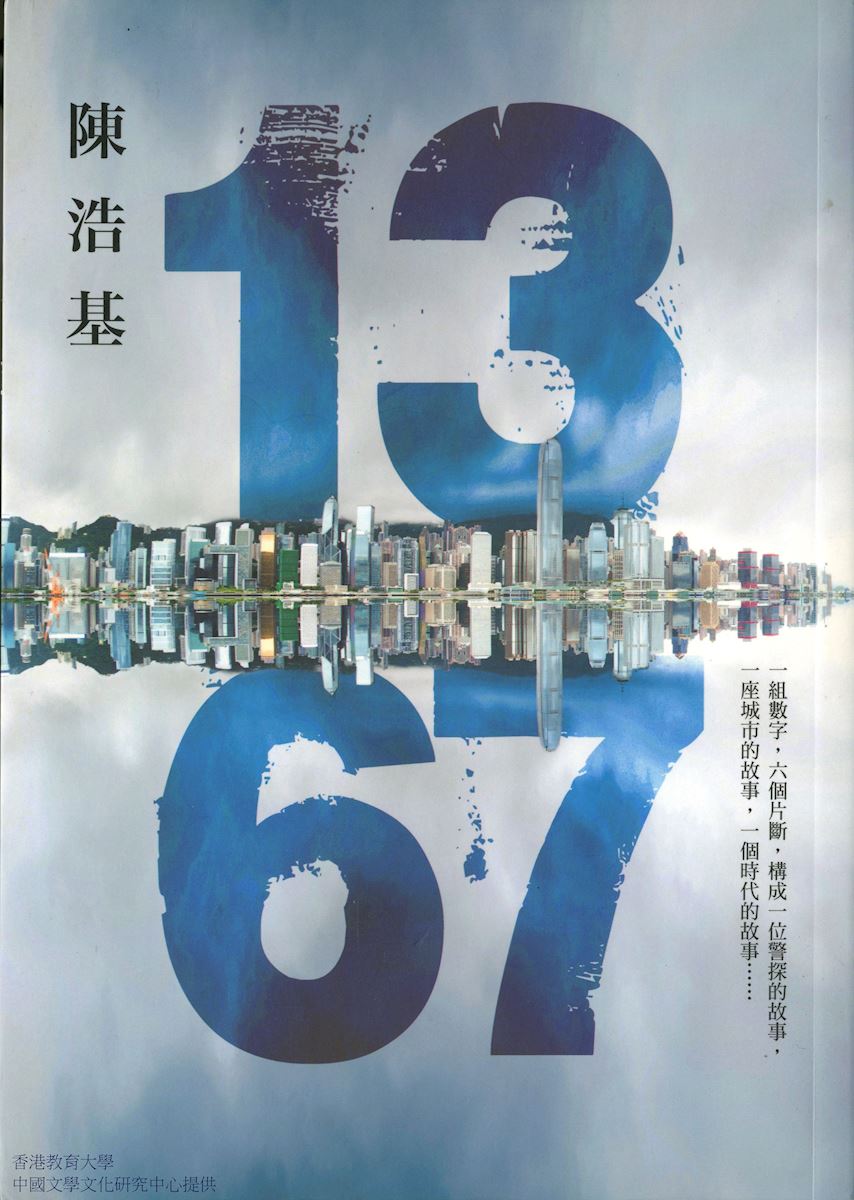
▲ Chan Ho-Kei's "13 . 67"
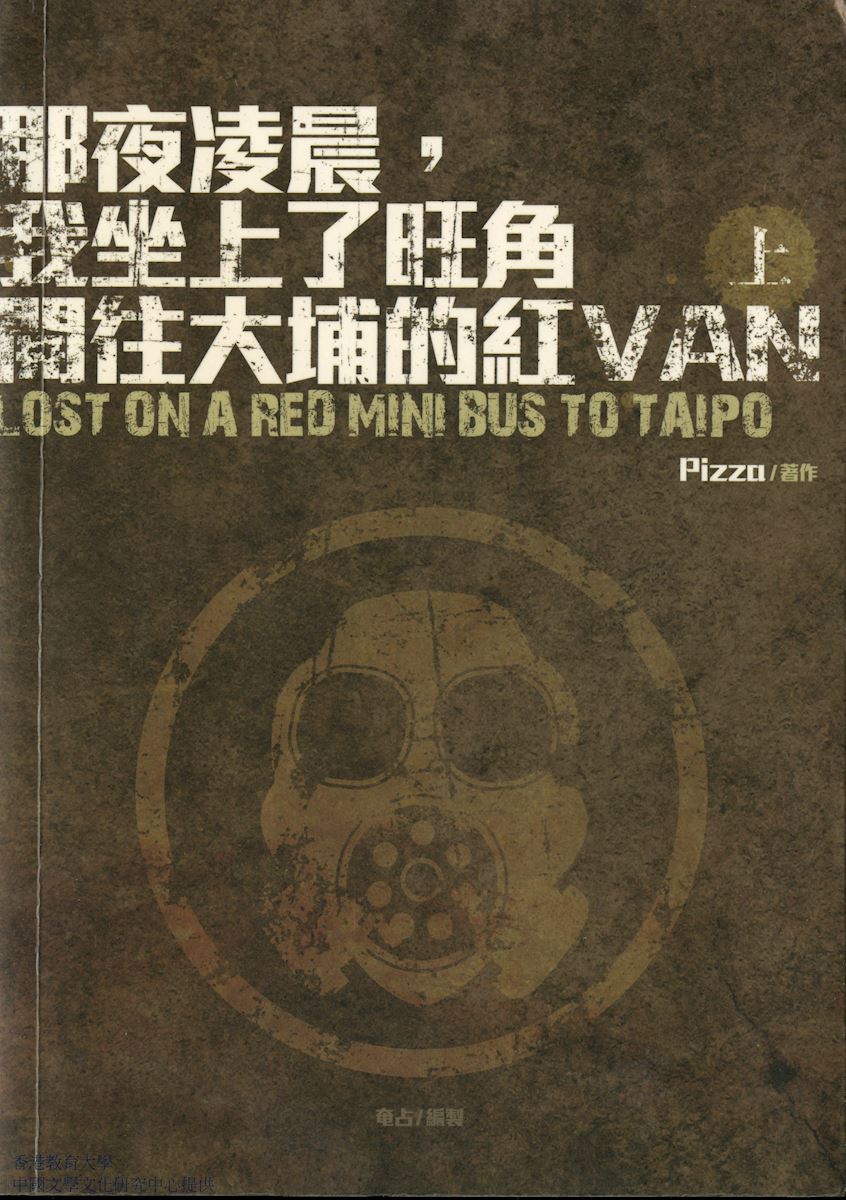
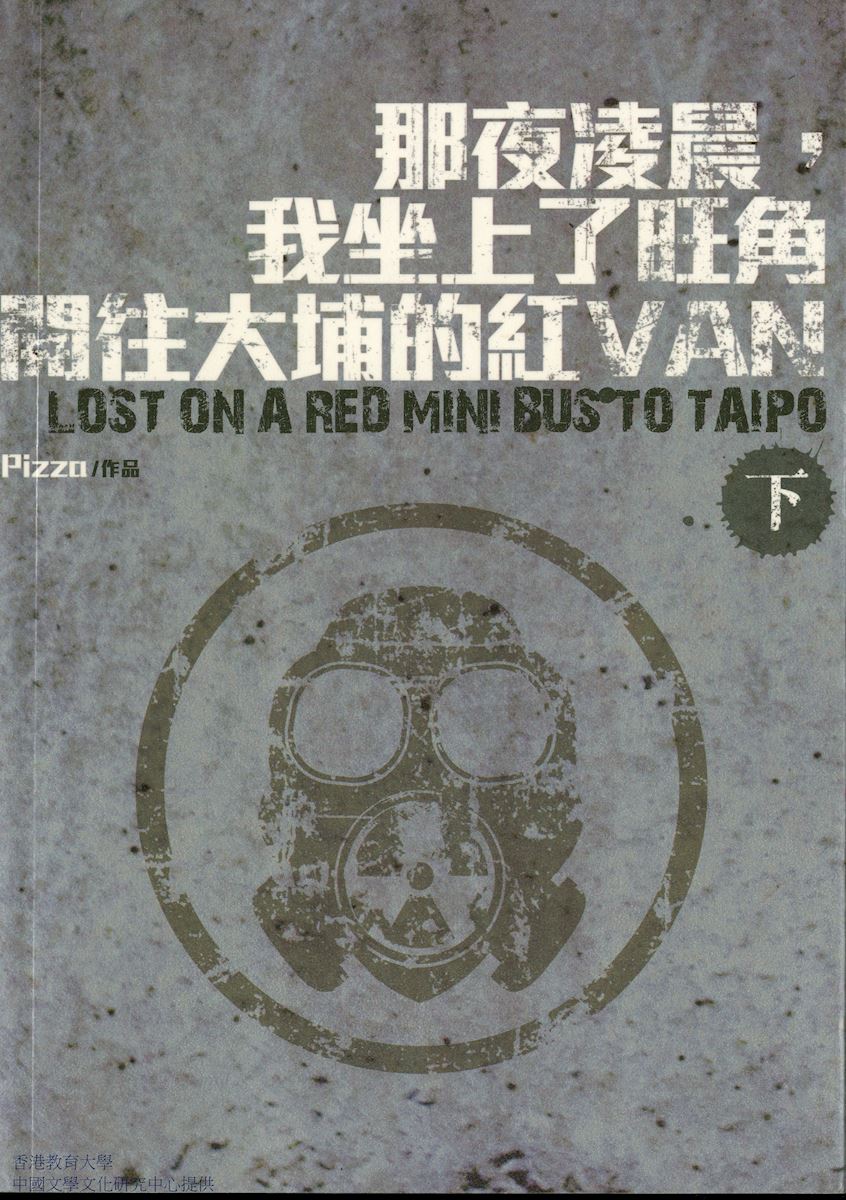
▲ Mr. Pizza's The Midnight After.
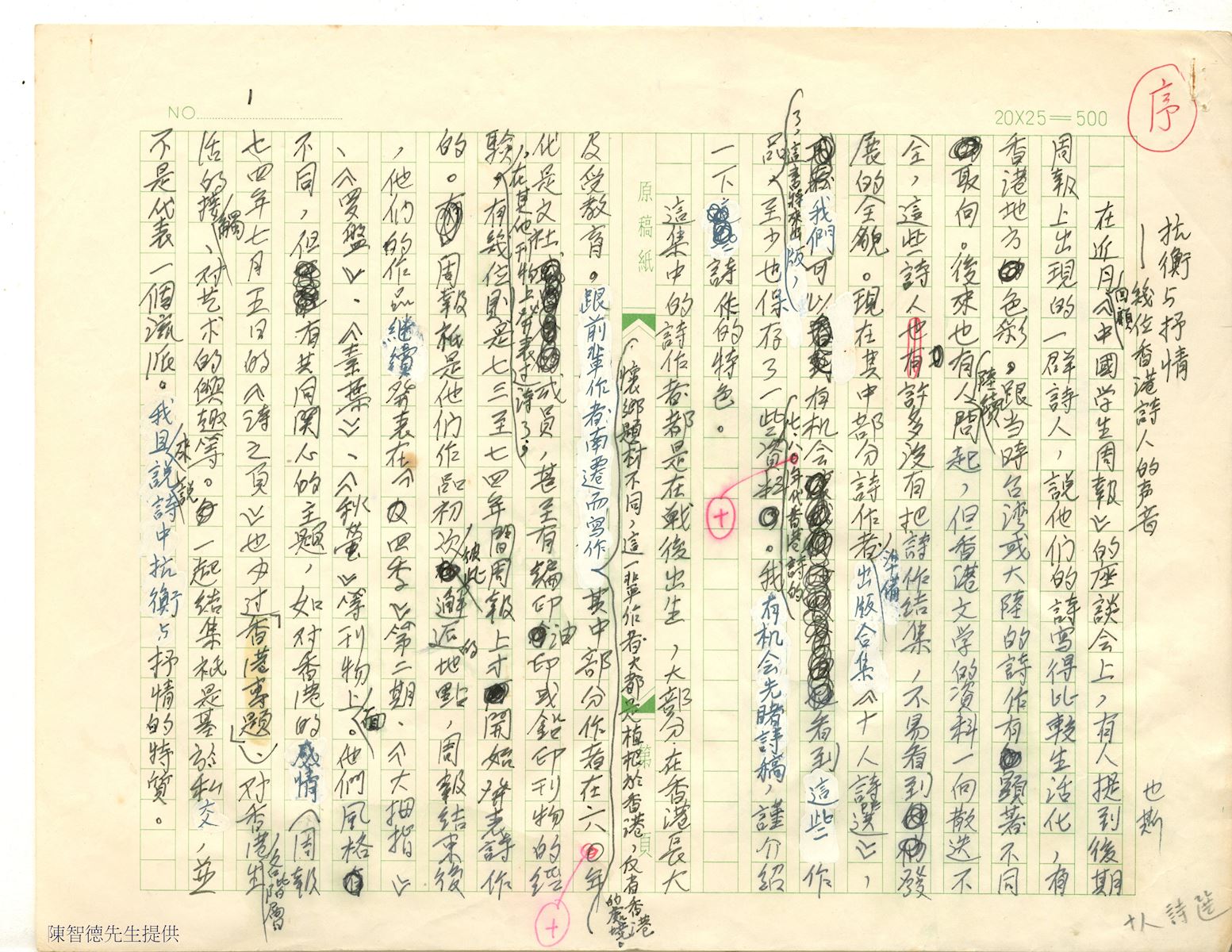
▲ Ye Si’s Manuscript “Confrontation and Lyricism ── The Poet’s Voice”
Online Lennon Wall
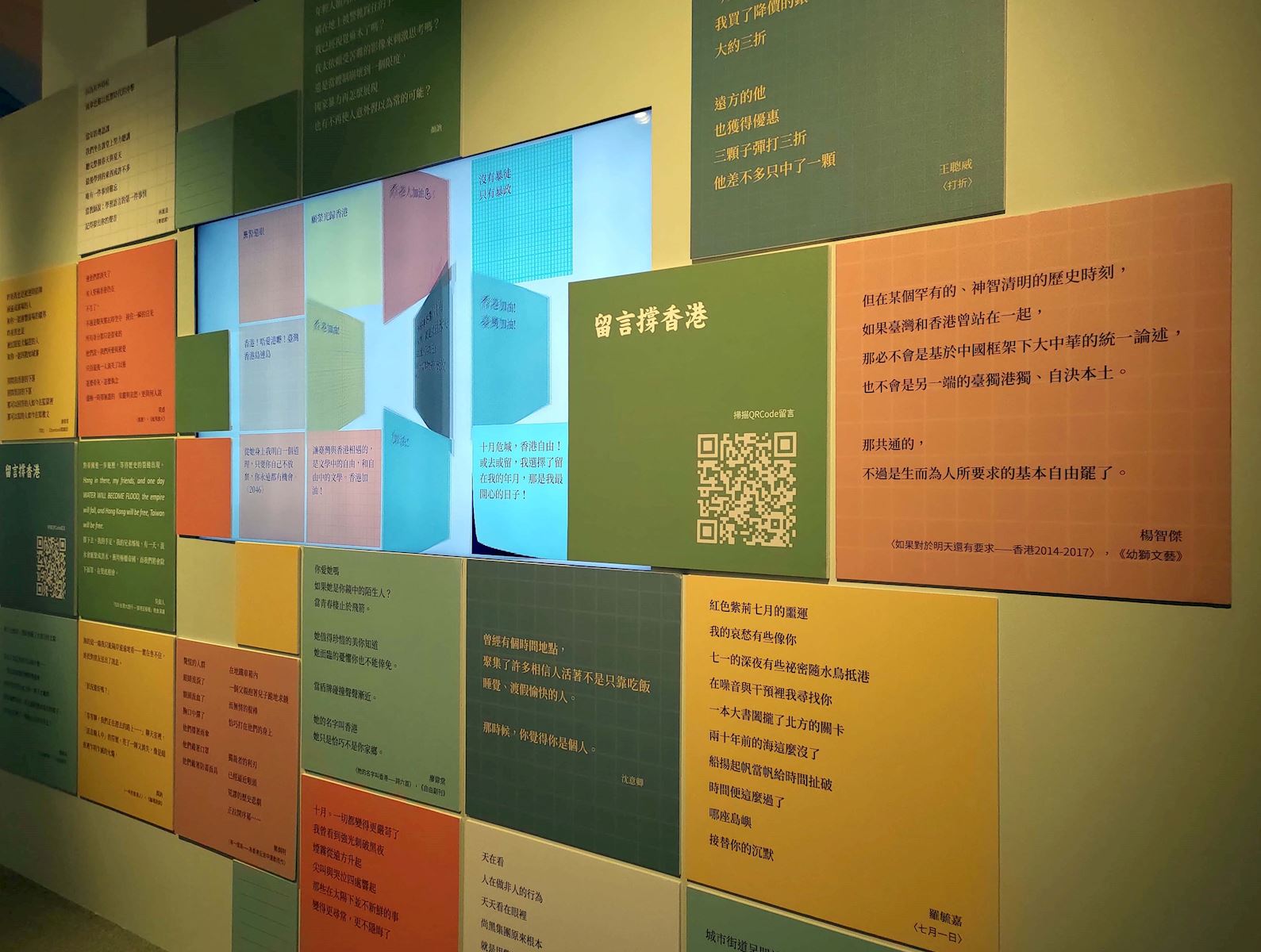
Visitors can leave messages by Scanning QR CODE.
Website:http://es.brightideas.com.tw/chat2019/front/
Important moments of Hong Kong literature
1971
The dispute over the territorial right of Diaoyu Islands triggered the Defend the Diaoyu Islands Movement.
1972
The Students’ Union from the University of Hong Kong organized the Youth Culture Festival and started the first Youth Literary Awards, while discussions on "Hong Kong literature" began in The Chinese Student Weekly.
1974
Chinese became the official language.
1975
January to June, Xi Xi's My City began its serial publication, and the term, “My City,” later became an important symbol for Hong Kong people's identity.
1984
December, The Sino-British Joint Declaration was signed, confirming the transfer of sovereignty over Hong Kong to China, and the "One Country, Two Systems" policy.
1986
September, the Hong Kong Literature Research Association (香港文學研究會) was established.
1989
June, the June Fourth Incident broke out at Beijing's Tiananmen Square, and a large number of Hong Kong people took to the streets to protest, voicing their support for the democratic movement.
1990
April, the "Basic Law of the Hong Kong Special Administrative Region of the People's Republic of China" was promulgated.
1995
June, Hong Kong Arts Development Council was established, becoming an important official organization in Hong Kong to promote and support various types of art activities (including literature).
1999
August, Chan Koonchung's Nothing happened (什麼都沒有發生) was published. His calm but slightly sarcastic writing style became a sharp contrast to the atmosphere of celebration created by the authority after the "Handover".
2008
February, the owner of the Youth Literary Book Store, Law Chi-wah, went missing and died from an accident, arousing the public's attention to his contribution to Hong Kong culture.
2014
June, China published the white paper, "The Practice of the 'One Country, Two Systems' Policy in the Hong Kong Special Administrative Region", which triggered the Occupy Central and the Umbrella Movement.
2097
In Dung Kai-cheung's novel, Histories of Time, Light of Matte Porcelain (時間繁史・啞瓷之光), the fictional time, an apocalypse with the arrival of the Great Flood, and a hundred years after the handover, question the possibilities of the continuity of Hong Kong's literature and history.
Stories of Hong Kong Literature
Q:Modernist poet, Ma Lang's poetry San Francisco Suite, was finally published after going through the United States, Singapore and Hong Kong, three periodicals, and the hands of three literary workers?
A:
With the discontinuation of Literary Current Monthly Magazine, the modernists went separate ways. Ma Lang moved to the United States for work, and wrote San Francisco Suite several years later, which he asked Li Wei-Ling to publish. Initially, Li sent a copy of the poetry collection to a literary periodical, but it was rejected. He then made a copy of the manuscript and sent it to Yang Ji Guang in Singapore. Yang felt that there was little significance publishing it in the papers of Singapore and Malaysia, and instead kept the poetry manuscript in the bag that he often carried. He once exchanged letters with Lau Yee Cheung, and learned about Hong Kong's Four Seasons. Hence, he again made a copy of the manuscript for Lau to publish in Leung Ping-kwan's Four Seasons.
The six poems of San Francisco Suite were originally planned for publication in the 3rd Issue of Four Seasons, but were unable to do so due to the periodical's financial problems. Leung Ping-kwan did not send the poems to other places, but together with "Epilogue" by Yang Ji Guang (signed with the name "Luo Miu") which describes the journey of Ma Lang's poetry, he sent it to The Thumb, which finally published it in its 41st Issue on October 8, 1976.
In September of that same year, 30 Poems in America was published in Taiwan by The Epoch Poetry Quarterly, marking the comeback of Ma Lang.
Q:Due to the republication of an old thesis, Hong Kong writer Lü Lun, discovered his work 50 years later. However, this article was authored by someone else ...
A:
Lü Lun published The Waterfront House in his later years, recalling the pioneering stage of Hong Kong's literature development. However, there were very few writers from the early days left, instilling a sense of loneliness. In 1986, the 13th Issue of Hong Kong Literary republished the thesis, "Evolution and Prospect of Hong Kong's New Literary World", written 50 years ago, and Lü Lun happened to publish "My Words" in the same issue. After reading the article, he published "Also My Words" in the magazine's next issue:
As the name "Bei Xi" evoked my memory, I read the article recommended by Mr. Yang Guo Xiong, and surprisingly "realized" that it was actually my humble work. Due to the war, all manuscripts of articles written before the war were burned when Hong Kong fell into the hands of the enemy, and I completely forgot that I had written this article. Today, when I reread it, it feels like another generation.
"Evolution and Prospect of Hong Kong's New Literary World" classified Hong Kong's literary history at that time into various stages, and its reappearance confirms the literature review of the writer 50 years later, which is considered the most dramatic episode of Hong Kong's literary history in the early days.
Q:In the 1980s, there were two periodicals with the name, Hong Kong Literary. Do you know which Hong Kong Literary is still in publication today, and even became Hong Kong's most long running literary magazine?
A:Hong Kong Literary (Bi-monthly) (1979-1980) was started by Cai Zhen-Xing (Song Mu) and others; in its "founding speech" they said:
In the 1980s, there were two periodicals with the name, Hong Kong Literary. Do you know which Hong Kong Literary is still in publication today, and even became Hong Kong's most long running literary magazine? Hong Kong Literary (Bi-monthly) (1979-1980) was started by Cai Zhen-Xing (Song Mu) and others; in its "founding speech" they said:
Though Hong Kong Literary is part of "Chinese Literature", Hong Kong's unique environment naturally gives rise to special topics and reality content. If the writers further develop their literary techniques and study this generation's mentality and exploration, there will be greater contribution in terms of art and national interest.
Hong Kong Literary (Monthly) started in 1985, and is today's longest running literary magazine in Hong Kong; Lau Yee Cheung said in its "forward":
Hong Kong literature and Chinese literature of various places are from the same origin, and are all part of China's literature, where a blood relationship exists that cannot be shaken off nor discontinued. In view of this, it could be best to treat Chinese literature of every region as a single ring, and linking them together will form an inseparable "literary chain".
Writers in the 1980s set a more magnanimous interpretation for local concepts. Besides emphasizing certain origins which cannot be "ignored" in Hong Kong literature, it also cannot prevent the uniqueness and hybridity of reality, which have a broad foresight for Chinese literature.
Q:Before the 2008 lunar new year, a Hong Kong bookstore owner suddenly went missing, and his body was only discovered ten days later when an odor from the book warehouse spread ...
A:
On February 4, 2008, when people were preparing for lunar new year, the owner of Hong Kong's Youth Literary Book Store, Law Chi-wah, went missing. Law Chi-wah used to be an employee of Joint Publishing, and took over the operation of Youth Literary Book Store in 1988. Youth Literary used to be an important cultural landmark of Hong Kong's Second Floor Bookshop, but poor business forced the book store to stop operation in 2006. Law Chi-wah packed the books into a small rented warehouse, hoping to revive the business. However, on February 4, 2008, when he was alone organizing the books, he was buried under more than twenty cartons of fallen books. He died without rescue and was discovered only when there was an odor from the body.
Youth Literary Book Store published many important books of Hong Kong literature, and cooperated with writers such as Wong Bik-Wan, Yip Fai, Qiu Shi-Wen, and Ye Si. Law Chi-wah spent his entire life quietly promoting Hong Kong's literature and cultural production, which unfortunately cost him his life ultimately. Scholar David Der-wei Wang thought that the day when Law Chi-wah died should be a day not to be forgotten in the literary and cultural history of Hong Kong.

